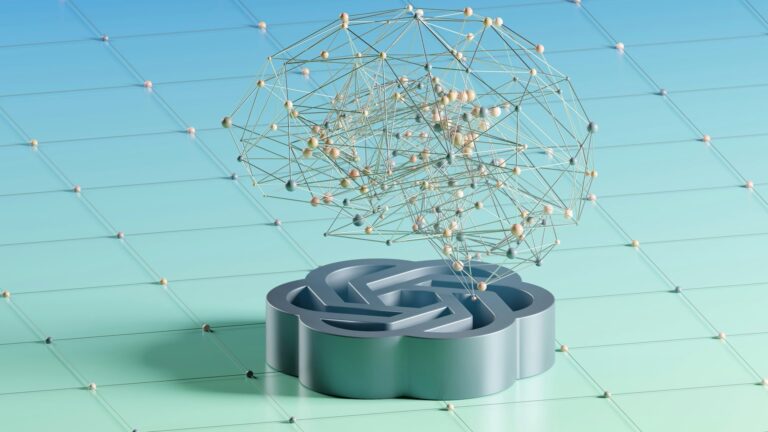Copyright Protection of AI-Generated Content
Using AI tools helps simplify creating content and makes it cheaper. However, the flip side of the development of AI technology raises many issues related to changes in the creative industry and the future of some professions, such as screenwriters, digital artists, and others. Also, there are many issues with copyright law and the AI-generated content, such as:
- Whether AI-generated content can be protected by copyright law?
- Do AI platforms infringe the copyright rights of authors of books, photographs, images, and other works?
- How AI developers can obtain rights on content usage for future development of their AI tools.
This article is dedicated to analyzing the possibility of copyright protection for AI-generated content.
Human Authorship Requirement
Under 17 U.S. §201, “copyright in a work protected under this title vests initially in the author or authors of the work.” The requirement for human authorship was considered by the courts. For instance, in a case where the plaintiff, Urantia Foundation, filed a lawsuit against Maaherra alleging him to infringe copyright by copying a book written by Celestial Beings, the court agreed with the defendant’s argument that copyright arises only when humans, not Celestial Beings, created the work and stated that “that it is not creations of divine beings that the copyright laws were intended to protect.”1 Urantia Foundation v. Maaherra (1997).
The U.S. courts consider whether the animal can be an author as well. Thus, in the case of the protection of copyright on a selfie created by a monkey, the court rules “against the conclusion that animals have statutory standing to sue under the Copyright Act.” Naruto v. Slater (2018).
Thus, the human authorship criterion has been introduced previously and was considered by the court before artificial intelligence started being used in various industries.
Human Authorship Requirement for AI-Generated Content
Despite the previous court practice on human authorship requirement, an engineer, Steven Thaler, filed a copyright application to the U.S. Copyright Office (USCO) to register an AI-generated work, “A Recent Entrance to Paradise.” The USCO denied the application based on the absence of human authorship. Subsequently, the case on the human requirement of AI-generated work was considered by the courts. The court defined “the understanding that “authorship” is synonymous with human creation has persisted even as the copyright law has otherwise evolved.” Thaler v. Perlmutter (2023). It should be noted that Thaler also filed a patent application where the inventor was DABUS, an AI system created by Thaler, but Thaler received a denial of PTO as well. The court also defined that AI cannot be an inventor. Thaler v. Vidal (2022).
Thus, courts consider human requirements as a necessary element for copyright protection. Under U.S. Copyright Office Guidance/3d Compendium $ 306, “The U.S. Copyright Office will register an original work of authorship, provided that a human being created the work.”
As to AI, the U.S. Copyright Office issued Guidance in 2023, according to which eligibility of AI-generated works for copyright protection will be considered by the Office case by case. Under the guidance, “… what matters is the extent to which the human had creative control over the work’s expression and “actually formed” the traditional elements of authorship.”
Based on this, AI can be a helpful tool for generating ideas for authors and would not stop authors from owning copyright on the work created by humans based on ideas suggested by AI. However, a novel created by an AI tool based on the user’s prompt prevents the author from having a copyright on the novel.
Duty to Disclose
While filing a copyright application, the applicant shall disclose unclaimable material, for instance, material from the public domain or previously registered material. Also, the applicant shall disclose AI-generation material. The duty to disclose arises when the part of AI content is more than de minimis under the Feist Copyrightability standard2. If part of AI content is less than de minimis (for instance, slight processing of human creating images), there is no need to disclose.
If the applicant has already filed the application and has not disclosed such information, he shall correct the application accordingly. If such work is already registered, the copyright holder shall correct the registration by submitting a supplemental registration.
Consequence of Failure to Disclose of AI-Generated Content
Failure to disclose AI-generated content can be illustrated in the case of copyright registration on Zarya of the Dawn (2023). Ms. Kashtanova applied to register the comic book Zarya of the Dawn. After registration, the U.S. Copyright Office discovered from social media that the author used Midjourney (a famous AI tool) to create the work. The Office reviewed the case and expressed that “rather than a tool that Ms.Kashtanova controlled and guided to reach her desired image, Midjourney generate images in an unpredictable way.” Letter of the U.S. Copyright Office dated February 21, 2023.
As a result of such review and correspondence with the applicant, the Office canceled registration for failure to exclude non-human authorship. They also granted new, more limited registration for the only human work the applicant created.
You might also be interested: AI Platforms vs. Copyright Owners: Who Will Win the Battle?
Conclusion
Human requirement is one of the key elements in considering whether the work is eligible for copyright protection. Authors who use AI tools can still claim copyright, but only on the elements created by humans. It is essential to disclose the usage of AI while registering copyright, and failure to do so may result in the cancellation of the copyright.
If you have questions as to copyright aspects in AI, you can reach Ortynska Law at [email protected] or by phone at 9147035632.
Footnotes:
